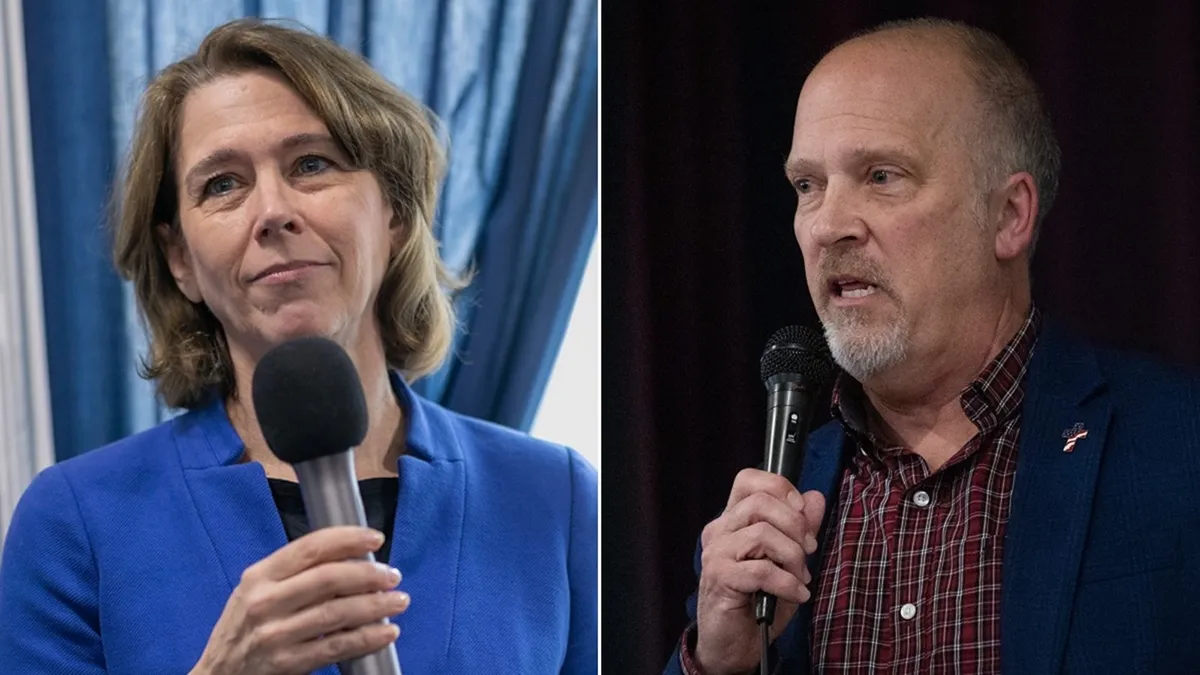
On Tuesday, voters in Wisconsin are heading to the polls for a pivotal race that could serve as a significant indicator of public sentiment during President Donald Trump's second term. The spotlight is on the competitive state Supreme Court race featuring two candidates: Republican-backed Waukesha County Judge Brad Schimel and Democratic-backed Dane County Judge Susan Crawford. Though this election is officially nonpartisan, it has ignited a political firestorm, further fueled by substantial financial backing from groups associated with tech billionaire and Trump adviser Elon Musk.
This election is crucial as it will determine the ideological balance of the Wisconsin Supreme Court, which currently leans liberal. The winner will replace retiring Justice Ann Walsh Bradley and will play a vital role in upcoming rulings on hot-button issues, including abortion access and redistricting. A notable case awaiting consideration involves whether the Wisconsin Constitution safeguards the right to abortion, a decision that could emerge shortly after the new justice is seated.
The atmosphere surrounding this race resembles a presidential election, with local television broadcasts inundated with political advertisements. Matt Smith, the political director at Milwaukee's ABC affiliate WISN-TV, described the situation: “This is becoming a true litmus test for the first 100 days of the Trump administration.” Such statements highlight the race’s significance as a potential reflection of voter sentiment in this critical battleground state.
Elon Musk's involvement has further complicated the race. His interest stems from the potential for the court to address redistricting cases, which could reshape congressional maps and significantly impact the balance of power in the U.S. House. Musk articulated the stakes clearly: “Whichever party controls the House, to a significant degree, controls the country, which then steers the course of Western civilization.” At a recent rally in Green Bay, Musk controversially distributed two $1 million checks to attendees to support Schimel, underscoring the high financial stakes involved.
Brad Schimel, the Republican candidate, has amassed nearly $20 million in support, mainly from Musk-linked groups. A former state attorney general, Schimel has received endorsements from Trump, Musk, and various conservative figures. Despite the backing, Schimel asserts that he will handle cases impartially, including those involving Trump. Conversely, Crawford, a Dane County circuit court judge and former private attorney, aims to project herself as a champion of impartiality, arguing that Schimel’s ties to Musk compromise his ability to remain fair.
As of Monday, the Brennan Center for Justice reported that more than $90 million has been spent in this election, making it the most expensive judicial race in U.S. history. This figure includes over $49 million supporting Schimel and more than $40 million backing Crawford. Comparatively, the previous record for spending in a state supreme court race was $56 million in Wisconsin's 2023 election. This massive financial influx has not gone unnoticed by voters, with many expressing concern over outside influence in local elections.
As of Monday, approximately 644,000 voters in Wisconsin have cast their ballots early, either in person or by mail, according to the Wisconsin Elections Commission. In addition to the Supreme Court race, voters will also decide on a ballot initiative regarding the requirement of a photo ID to vote, which is already mandated by state law. While proponents argue that this measure would enhance election security, critics allege it may disenfranchise voters. A recent Marquette University Law School poll indicated that a majority of registered voters support the photo ID requirement and the proposed constitutional amendment.
As the election approaches, the outcome in Wisconsin could provide valuable insights into voter attitudes and priorities as the nation navigates a pivotal political landscape.